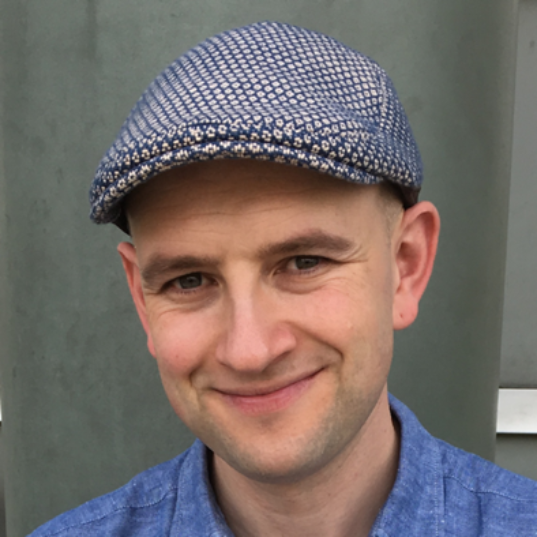Engineering microbes to grow materials with DNA-programmed functionalities
Tom Ellis
Imperial College Centre for Synthetic Biology
Department of Bioengineering, Imperial College London, UK
报告时间:2021年8月4日下午4-6点
直播链接:https://www.koushare.com/lives/room/027679
主持人:张文彬
Abstract
Plants produce many of the most important materials we use every day, and a single plant can produce many different types of materials, despite every cell containing the same genome. Synthetic biology offers a new opportunity to learn how to write DNA programs that make new materials with diverse functions and properties. Our group uses microbes proficient in producing the base polymer of all plant-life – cellulose – and writes modular DNA programs to control and diversify the materials these cells produce. We use synthetic biology to engineer bacteria and yeast to sense spatial constraints, chemical signals and light, and in response change their behaviour and produce proteins as the material is grown. We have now further applied synthetic biology to recreate the yeast-bacteria relationship seen naturally in Kombucha tea fermentation and are able to use a synthetic co-culture to produce new cellulose-based materials with modular biosensor and catalytic properties. Through modular reprogramming and the engineering of specialisation, our microbial cultures create a new class of engineered living materials.
 Tom Ellis FRSC is a Professor in the Bioengineering Department of Imperial College London with >60 publications in synthetic biology including work in Cell, PNAS, Nature Methods and Nature Biotech. Tom joined Imperial as a group leader in 2010 to help push research at the UK’s first centre for synthetic biology. He obtained his undergrad degree in Molecular Biology at Oxford University and his PhD from the University of Cambridge examined the use of DNA-binding drugs as synthetic gene expression regulators. Tom followed-up his PhD research working at a London-based drug-discovery start-up, before moving to Boston, USA to spend two years investigating synthetic biology at Boston University in one of the founding groups of the field. Prof Ellis is now a team leader in the world’s largest synthetic biology project, the Synthetic Yeast Genome (Sc2.0) Project and is Associate Faculty at Synthetic Genomics at the Wellcome Trust Sanger Institute, developing synthetic biology tools that can help understand the human genome. At the Imperial College Centre for Synthetic Biology, the Ellis Lab research focuses on design-led synthetic biology and synthetic genomics, especially developing tools to program industrially-relevant microbes with new functions of sensing, logic and control for the sustainable production of biochemicals, cell-based therapies and new materials.
Tom Ellis FRSC is a Professor in the Bioengineering Department of Imperial College London with >60 publications in synthetic biology including work in Cell, PNAS, Nature Methods and Nature Biotech. Tom joined Imperial as a group leader in 2010 to help push research at the UK’s first centre for synthetic biology. He obtained his undergrad degree in Molecular Biology at Oxford University and his PhD from the University of Cambridge examined the use of DNA-binding drugs as synthetic gene expression regulators. Tom followed-up his PhD research working at a London-based drug-discovery start-up, before moving to Boston, USA to spend two years investigating synthetic biology at Boston University in one of the founding groups of the field. Prof Ellis is now a team leader in the world’s largest synthetic biology project, the Synthetic Yeast Genome (Sc2.0) Project and is Associate Faculty at Synthetic Genomics at the Wellcome Trust Sanger Institute, developing synthetic biology tools that can help understand the human genome. At the Imperial College Centre for Synthetic Biology, the Ellis Lab research focuses on design-led synthetic biology and synthetic genomics, especially developing tools to program industrially-relevant microbes with new functions of sensing, logic and control for the sustainable production of biochemicals, cell-based therapies and new materials.
Website:https://www.tomellislab.com/